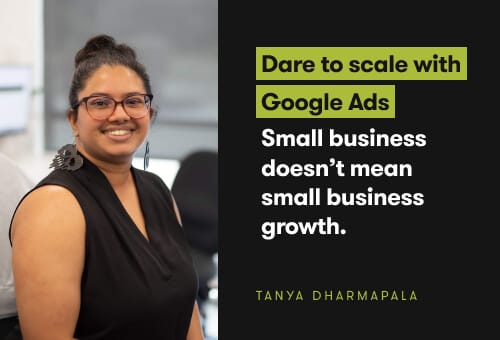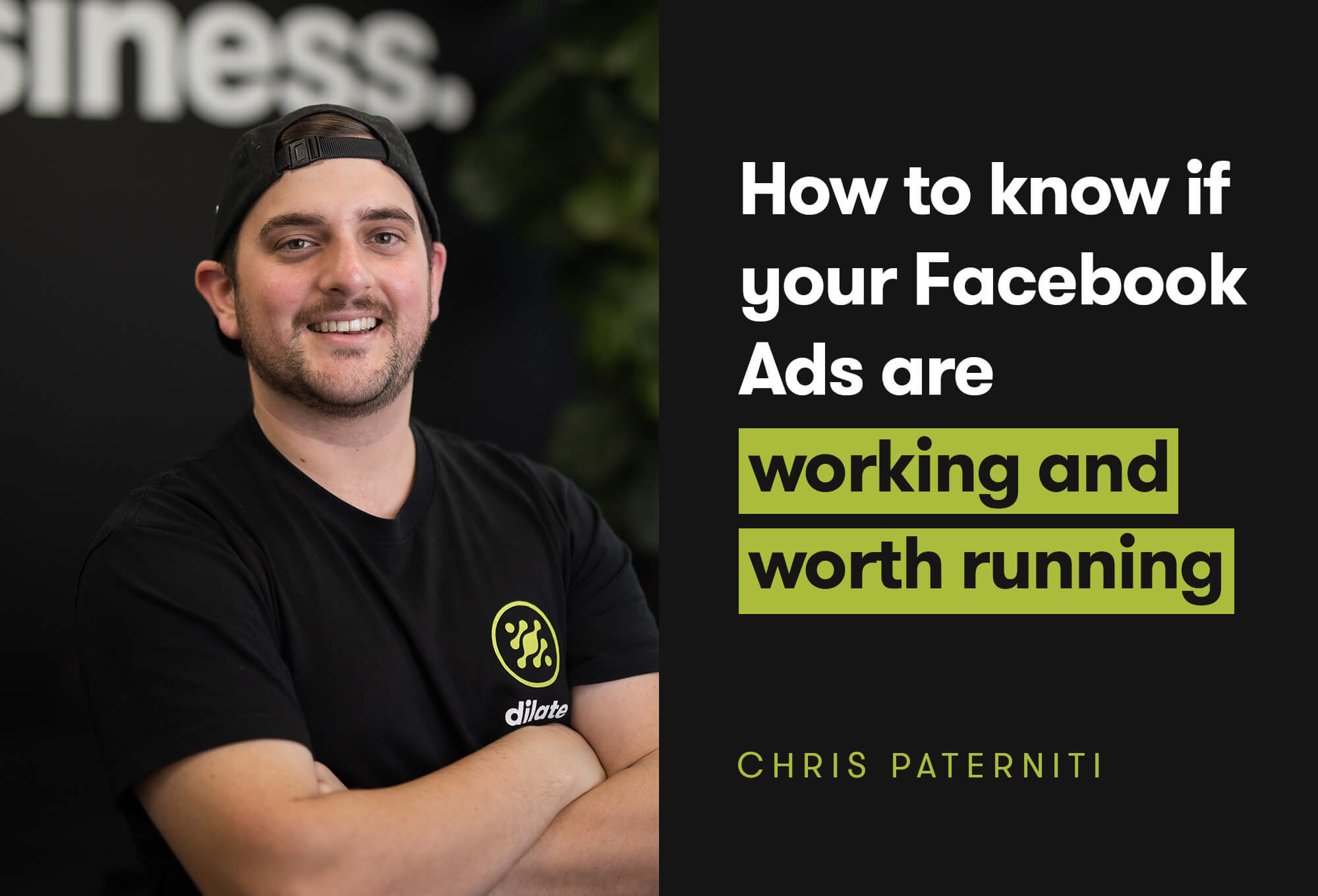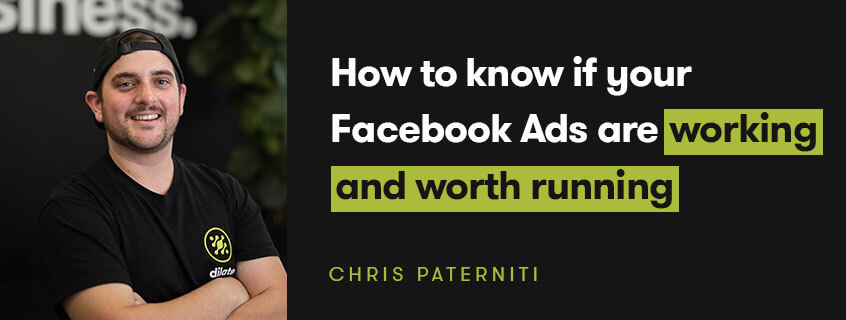
- Understanding Facebook Ads
- Target your Audience in Facebook Ads
- Money in, Money out: Budgeting for Facebook Ads
- Campaign Types and Ad Formats
- Facebook Ads vs. Other Social Media Platforms
- Pros and Cons of Facebook Ads
- Facebook Ad Analytics and Metrics
- Facebook Ads for Businesses
- So are Facebook Ads worth it?
- Strategies for Successful Facebook Advertising
How to know if your Facebook Ads are working and worth running

If you own a business, you might have thought about using Facebook ads to reach more people and attract new customers. But with so many advertising options out there, it can be hard to decide if Facebook ads are worth the money.
One key strength about Facebook ads is that you can choose who sees them. You can target people based on their demographics - their ages, interests, their behaviour. This means you can show your ads to people who are most likely to be interested in what you're selling, which can help you make more sales.
Let's talk about everything else you need to know about Facebook ads, so you can decide if they're worth your time and investment.
- Understanding Facebook Ads
- Target your Audience in Facebook Ads
- Money in, Money out: Budgeting for Facebook Ads
- Campaign Types and Ad Formats
- Facebook Ads vs. Other Social Media Platforms
- Pros and Cons of Facebook Ads
- Facebook Ad Analytics and Metrics
- Facebook Ads for Businesses
- So are Facebook Ads worth it?
- Strategies for Successful Facebook Advertising
Understanding Facebook Ads

Facebook Ads is a self-serve advertising platform that allows you to create and run ads across Facebook and even Instagram. It's a great tool that can help you target relevant audiences based on location, gender, age and interests. It converts results fast whether it’s inquiry or sales, and allows you to make better decisions based on the performance of your ads. Here's what else you need to know about them:
How Facebook Ads Work
You can create different types of ads, from images, videos, or carousels, and choose where you want your ads to show up, like the main feed, display ads, stories or reels.
You can also decide on your budget and bidding strategy, which means how much you're willing to pay for each ad impression or click.
What’s to love about Facebook Ads
Facebook Ads come with a range of benefits. Here are some of the most important ones:
- Reach: Facebook has more than 2.8 billion active users every month, which means you can get your ads in front of a lot of people.
- Targeting: You can use Facebook Ads to show your ads to specific groups of people based on their interests, behaviour, and demographics.
- Cost-effective: You can set your own budget and choose exactly who you want to target, which can make Facebook Ads a cost-effective way to advertise.
- Measurable: Facebook Ads provides detailed analytics and reports, so you can see how your ads are performing and make decisions based on data.
- Flexibility: You can create different types of ad campaigns with Facebook Ads and choose where your ads appear, like in news feeds, stories, or on Instagram.
Best Practices for Facebook Ads
To make the most of your Facebook Ads, here are some tips to follow:
- Define your goals: The goal with running Facebook Ads is fairly straightforward: to convert sales or inquiry. But beyond that, you should be very clear about your budget, how long you want your ads to run in relevance to a launch or particular campaign, and who it is you’re targeting.
- Know your audience: Understand your target audience and create ads that appeal to them. Know their location, their age, possible income, lifestyle and interests, and speak to the pain points that they’re experiencing in relevance to your solution. If you don’t know your audience, you’re throwing money away.
- Use eye-catching visuals: Use high-quality images or videos that grab people's attention and showcase your product or service.
- Split test and iterate: Try different ad formats, targeting options, and messaging to see what works best for your audience.
Monitor your performance: Keep an eye on how your ads are doing and make changes as needed. Monitoring your performance allows you to optimise your campaign where needed, and pivot your approach if needed.
Target your Audience in Facebook Ads

When it comes to Facebook ads, audience targeting is crucial to the success of your campaign. By targeting the right audience, you can ensure that your ads are seen by people who are most likely to be interested in your product or service.
Targeting Options in Facebook Ads
There are a couple of options for targeting available to help you effectively capture your target audience's attention in Facebook ads:
- Custom Audiences: Allows you to target people who have already interacted with your business, such as those who have visited your website or made a purchase in the past. You can use this for retargeting and target the same audience that already exists within your database.
- Prospecting: Understanding the age, gender, and location of your target audience can help you create ads that are more relevant and appealing to them. This could be used for location based businesses, such as hospitality and tourism, trades and construction, and events.
- Lookalike Audiences: These audiences are similar to your existing customers or followers and can be created based on a variety of factors, such as interests, behaviours, and demographics.
By using these tools, you can create ads that are more relevant and appealing to your target audience, ultimately leading to a more successful campaign.
Money in, Money out: Budgeting for Facebook Ads

When you run Facebook ads, you need to think about how to maximise your cost effectiveness. Meaning, go in with a budget based on costs of the product or your service and how much you need to make back on return. From a Facebook Ad perspective, here are some other things to think about when deciding how much to spend:
Ad Budget:
This is the amount of money you're willing to spend on your Facebook ads. You can set a daily budget or a lifetime one, it all just depends on your preferences.
Facebook Ads Cost:
The cost of Facebook ads varies depending on different things like your target audience, ad placement, and ad format.
Cost per Click:
Otherwise known as CPC, this is the amount you pay for each click on your Facebook ad. You want to keep your cost per click low so that you can get the most out of your ad spend.
Ad Spend:
This is the total amount of money you spend on your Facebook ad sets over a specific period. You want to track your ad spend to make sure you're not spending too much or too little.
By thinking about these things, you can decide how much money to spend on your Facebook ads. You want to set a realistic budget and monitor your spending so that you can get the most out of your ads at potentially lower costs.
Campaign Types and Ad Formats

When it comes to Facebook Ads, there are several campaign types and ad formats that you can choose from. The type of campaign you choose will depend on your advertising goals, and the ad format will depend on the type of content you want to promote.
Campaign Types
Facebook has a couple of campaign types that they offer, including:
- Awareness: Designed to increase brand awareness and reach a wider audience at the top of the sales funnel. Brand awareness campaigns are typically cheaper than conversion campaigns as it signals to Facebook that you’re not actively seeking a transaction, rather, engagement and reach.
- Consideration: Another top of funnel campaign type that is designed to encourage people to think of you as an option for a specific problem. It’s used to simply showcase your product or service, how to use it and maybe even its benefits.
- Conversion: Designed to drive specific actions, such as making a purchase or filling out a form. It’s typically more expensive because Facebook expects you to be making a direct return on your ad spend.
Ad Formats
Facebook also offers a few different ad formats for you to choose from, including:
- Image Ads: A single image that shows the product or service. These are great for showcasing a product or service quickly.
- Video Ads: Videos are typically more engaging as they touch on more senses of the audience (visual and auditory). They're a wonderful way to tell a story or showcase a product in action.
- Carousel Ads: These feature multiple images or videos that users can swipe through. They're amazing for showcasing multiple products or features at once if you’re launching a collection of products or differentiating between different tiers of services.
- Slideshow Ads: These ads feature a looping video made up of several images. They can help create a video-like experience at lower costs and bring in a wider audience network.
However, it’s important to note that no ad-format has a better conversation rate than the other. Factors such as targeted audience, ad optimisation and how effective your landing page is plays an important role in the success of your ads.
Choosing an ad format will depend on the resources you have and what you can outsource if you don’t have an in house creative team. Test out different ad formats, different target audiences and build an effective landing page to see what works best for your audience and for your brand voice.
Facebook Ads vs. Other Social Media Platforms
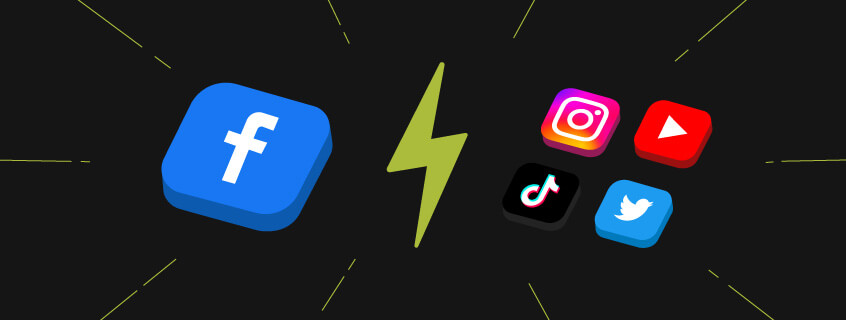
When it comes to advertising on social media, Facebook isn't the only option out there. Other platforms like Instagram also have advertising options. So, how do Facebook ads compare to ads on other social media platforms?
First of all, it's good to know that each platform has its own audience and user behaviour. Instagram is popular with younger people and is all about pictures and videos, while Facebook has a more diverse group of users and offers different selections of ads.
Facebook is still the most popular platform for advertising, with over 9 million active advertisers. But Instagram is catching up, with over 2 million active advertisers and more people using the platform every day. So, it's a good idea to think about both platforms when you're deciding where to spend your money.
When it comes to the kinds of ads you can make, Facebook has more options. You can make video ads, carousels, and more. Instagram is known for its Stories ads and eye-catching photo and video ads.
Pros and Cons of Facebook Ads

Facebook Ads can be a powerful tool to grow your business, but they’re not without their drawbacks, so here are some consideration to take into account with Facebook Ads:
Pros
- Highly targeted: With Facebook Ads, you can choose who sees your ads based on things like their age, interests, what they do, and where they are. This helps you reach the people who are most likely to be interested in what you're selling and more likely to do what you want them to do.
- Cost-effective: Facebook Ads are a more affordable option compared to traditional advertising methods like TV or radio. You can set your budget and bid for ad space, which gives you more control over your spending.
- Increased brand awareness: Facebook Ads can make more people aware of your brand. Even if someone doesn't click on your ad, they might still see it and remember your brand later.
- Easy to create and manage: Making and managing Facebook Ads is pretty simple. You can use Facebook's Ads Manager to create and launch your ad campaigns and see how they're doing right away.
Cons
- Ad fatigue: People see a lot of ads on Facebook every day, which can make them tired of ads. To overcome this, you need to be constantly tweaking your creatives and ensuring you stay on top of your analytics.
- Limited reach: There are a lot of Facebook users, but it might not be the best place for every business. Some demographics, such as older generations, might not use Facebook as much and might be more receptive towards traditional advertising channels. If that’s the case for your business, consider investing in other marketing channels or repositioning your Facebook ad strategy to target the families of your actual target market.
- Algorithm changes: Facebook's rules for showing ads are always changing. This can make it harder for your ads to work well. However, if you know exactly who your customers are, what channels they’re most likely to be on, and what your marketing strategy is trying to accomplish, then you will be able to adapt to sudden algorithm changes.
- Privacy concerns: Some people might be indifferent towards Facebook because of how it deals with people's private information. A solution to this is to have a first-party data strategy, like email marketing, so you can directly own your prospects information and not rely on Facebook's privacy issues.
Overall, Facebook Ads is a powerful tool for businesses looking to reach their target audience. However, it's important to weigh the pros and cons before investing in a Facebook Ads campaign.
Facebook Ad Analytics and Metrics
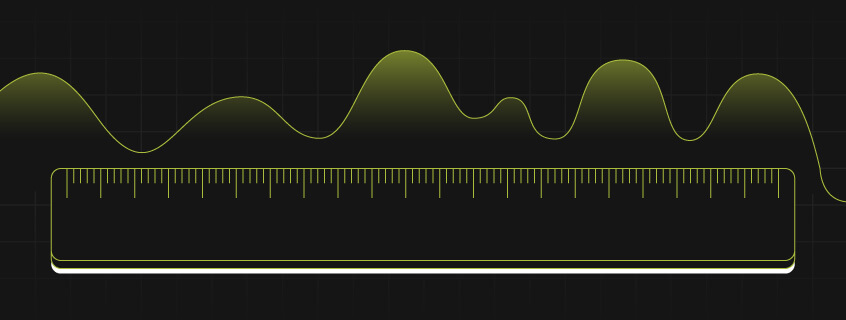
When it comes to Facebook ads, tracking and analysing your ad campaigns' performance is crucial. Facebook provides a range of analytics and metrics to help you measure your ads' success and optimise your campaigns. Here are some key metrics to keep in mind:
Reach
This refers to the number of people who have seen your ad. It's important to keep track of your reach to ensure that your ads are being seen by your target audience.
Clicks
This means the number of times people have clicked on your ad. This metric is important because it measures the effectiveness of your ad's call to action.
Impressions
This refers to the number of times your ad has been displayed. It's important to keep track of your impressions to ensure that your ad is being shown to your target audience.
Cost per Click (CPC)
This means the average cost you pay for each click on your ad. This metric is important because it helps you determine the effectiveness of your ad and how much you're willing to pay for each click.
Conversion Rate
This refers to the percentage of people who have completed a desired action after clicking on your ad. This metric is important because it measures the effectiveness of your ad in driving conversions, i.e. sales and leads.
Facebook Ad analytics provides a wealth of data to help you optimise your ad campaigns. By tracking and analysing your ad's performance, you can make data-driven decisions to improve your ad's effectiveness and reach your advertising goals.
Facebook Ads for Businesses
If you're a business owner or marketer, you might be thinking about using Facebook Ads to promote your products or services. Facebook Ads can be a good way to reach a lot of people and get them to go to your website.
One advantage of Facebook Ads is that you can choose who sees them based on things like what they're interested in. This can help small businesses with a small budget make the most of their money.
Another is that you can see how well your ads are doing and change them if you need to. This can help you make the most of your money too.
But it's important to remember that Facebook Ads aren't the only thing you need to do to make your business successful. You also need to think about how much money you want to spend on them and whether they fit with your other marketing plans.
Overall, whether Facebook Ads are worth it for your business depends on a lot of things, like who you're trying to reach and how much money you have. You can figure out if they're a good idea by keeping an eye on how well they're doing.
So are Facebook Ads worth it?
The effectiveness of Facebook ads can depend on metrics like your target audience, what your ad sets look like and what your budget looks like for each of them.
It's always important to remember that whilst Facebook ads are wonderful for spreading brand awareness, especially for small businesses, you need to approach it with clearly identified customers, specific goals, and the overall marketing strategy in mind.
If you want to attract new audiences to your business, Facebook Ads can help create the best results. With over 2.8 billion Facebook users, it's a big audience to show your ads to. On average, about 9 out of every 100 people who see your ad will take the action you want them to take, like buying something or filling out a form.With lots of people using the platform and ways to target them, it's a good way to generate revenue fast.
Strategies for Successful Facebook Advertising

So you’re convinced to start your Facebook Ads journey. When it comes to Facebook advertising, having a solid strategy is essential for achieving success. Here are some tips to help you create a successful Facebook advertising campaign:
Define Your Audience
Before you start creating ads, it's important to define your target audience. Facebook has a powerful targeting system that allows you to target users based on their interests, demographics, behaviour, and more. By defining your audience, you can create ads that are more relevant and appealing to them.
Use Eye-Catching Visuals
Facebook is a visual platform, so it's important to use eye-catching visuals in your ads. Use high-quality images or videos that are relevant to your product or service. Make sure your visuals are clear and easy to understand.
Craft Compelling Ad Copy
Your ad copy should be concise and compelling. Use clear and digestible language that communicates the value of your product or service. Highlight the benefits of your product or service and use a call-to-action to encourage users to take action.
Test and Refine Your Ads
Testing and refining your ads is essential for achieving success with Facebook advertising. Try different ad formats, visuals, and ad copy to see what works best for your target audience. Use Facebook's ad analytics to track the performance of your ads and make adjustments as needed.
Need a hand?

At Dilate, we take the confusion and guesswork out of Facebook Ads and keep your business growth goals in mind. Whether you’re new to Facebook Ads, or need a team of experts to help drive your marketing strategy, our team can help. So let’s talk, and grow your business together.
Subscribe to our Newsletter
RELATED BLOG
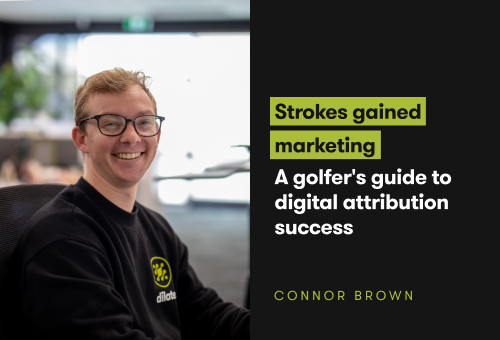
Strokes Gained Marketing: A Golfer's Guide to Digital Attribution Success
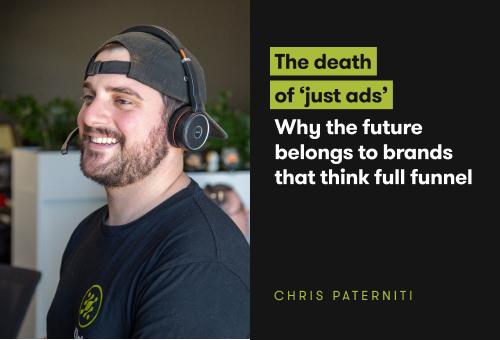
Why the future belongs to brands that think full funnel

Strokes Gained Marketing: A Golfer's Guide to Digital Attribution Success










